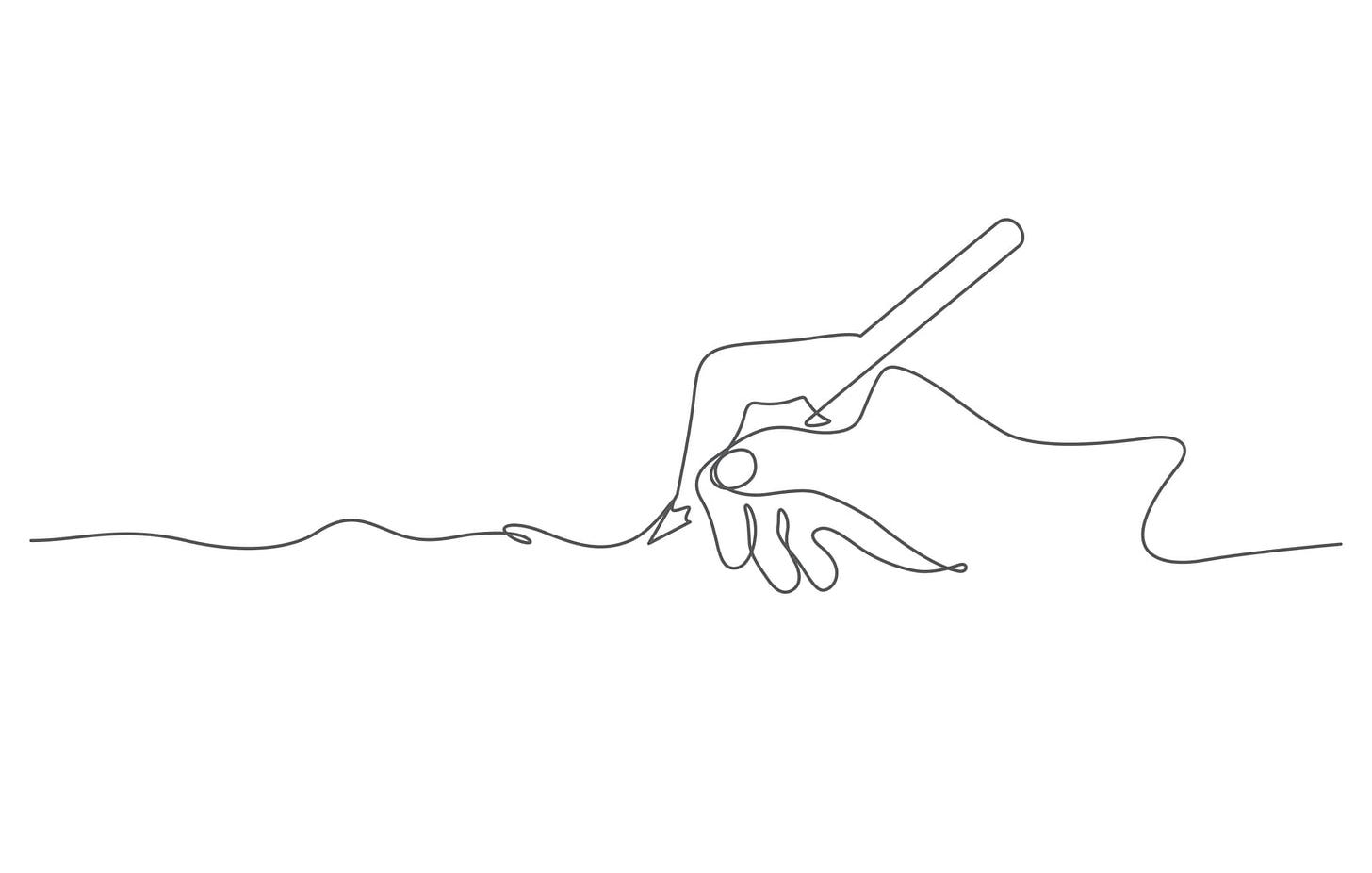
Something More is a media channel about mindset, self-leadership and living a life that matters by Caroline Ferguson, Mindset Trainer. Subscribe for free to receive a weekly article containing tools, techniques and tips for challenging and changing your mindset.
If you really want to shift old habits and explore that feeling that you were born for something more, investing as little as £1.54 a week will give you access to monthly, live, group-coaching sessions and an extra-value “More Mindset” post each week. I hope you’ll join me, and support yourself and this project.
So, what’s all this about a bucket?
I often use metaphors in my work as a mindset trainer and speaker. They help to convey, in simple terms, what might otherwise take many words to explain.
I have to admit, some of my examples lack elegance. The leaky radiator, for example (I’ll explain that one another day). And this one, the bucket.
I started using this metaphor to convey to my highly sensitive clients how we, as the twenty-odd percent of humans who have sensory processing sensitivity (also known as highly sensitive persons or HSPs – more on that another time) can take better care of ourselves. It proved so helpful that I now use it with everyone.
Imagine you have a bucket that holds what you can tolerate in a day.
If we’re healthy, we’ve slept well, eaten a decent breakfast and there isn’t much stress in our lives, our bucket is pretty much empty at the start of each day.
Gradually, as the day progresses, the bucket starts to fill up. Each decision we make; each challenge we face; each tricky conversation; even everyday tasks – they all add to the level in the bucket.
And mostly, that level will stay manageable and we’ll be absolutely fine. A relaxing evening and a good night’s sleep will drain the bucket overnight so that it’s nice and empty for the following day.
That’s on an exceptionally good day, but we live in the real world, right?
What about the not-so-good days?
Suppose you’re not feeling well. Or you slept badly. Or you’re upset after a row with your partner. Or your son is being bullied at school and it’s breaking his heart – and yours. Or your boss is a sociopath and you dread each day at work.
What if your home costs have sky-rocketed and you don’t know where you’re going to find the money. Or you have a long-term auto-immune illness. Or you’ve fallen out with your best friend of twenty years. Or you’re struggling with anxiety or depression.
In other words, what happens to the level in your bucket when real life happens?
You start each day with your bucket at least half full.
You are incredibly resilient, you know. You’ve survived every single thing that’s ever happened to you. Each day you put one foot in front of another and you keep breathing in and out. You achieve incredible things, despite the stuff in the bucket.
But the fuller that bucket gets, the more you have to rely on your resilience and on stress hormones like adrenaline and cortisol to see you through. They’re useful as a quick fix but they place a high demand on your endocrine system and are not a great long-term solution, as far as your health and wellbeing are concerned.
What happens if your bucket gets so full that it overflows?
Welcome to burnout. We all have occasional bad days but when they start joining up, it can lead to a long-term problem.
I’ll own up and admit that when my bucket overflows, things get messy:
Like the time when I had a disastrous house move, following months of stress and uncertainty. Utterly exhausted and feeling broken, I had to go to a social event that evening and make polite conversation. Yup, messy.
Or the time I was trying to juggle therapy training on top of a full-time job, a relationship breakdown and being bullied by a tutor on another programme. Uh huh, reeeeaally messy.
Messy for me is feeling like my head’s going to explode, crying (a lot) and the shortest of short fuses. My executive functioning and ability to find solutions to problems are severely compromised. I feel depleted, helpless, hopeless and full of self pity. It’s a horrible place to be.
An overflowing bucket doesn’t have to be caused by big stuff. There have been several times when I’ve come close to overwhelm through multiple, minor events stacking up over a period of time. Add in lack of sleep, or not feeling well, and these conditions can create a temporary perfect storm.
Fortunately, my bucket doesn’t get close to overflowing these days.
Why is that? What’s changed?
The main reason is because I’ve developed greater self-awareness, which I believe is the number one life skill. I’ll be talking a fair bit about self-awareness in Something More.
When we know ourselves in depth, we’re much more conscious of what’s going on with the bucket. We know when the level is healthy, when it’s rising and when we’re close to the edge. That awareness give us a choice: we can stay on the same path and risk it overflowing, or we can take action to return things to a more manageable level.
5 Steps to prevent your bucket from overflowing
Check in with yourself regularly, especially when there are several stressful things going on. Ask: “How do I feel right now, emotionally and physically? How tired am I? How close am I to the rim of the bucket today?” Listen to your mind, emotions and body. Pre-empting and preventing rising bucket levels is much easier than mopping up the mess when it overflows.
Make a list of all the things on your plate. “What’s going on right now, and what do I have coming up?” Prioritise them in order of importance, with serious long-term issues at the top of the list. We all need a bit of wriggle room and space for emergencies – if you’re full up, you don’t have that space.
What can you delete or delegate from the list? What tasks and actions have been hanging around, taking up space? Has their moment passed? Are they actually someone else’s choice, not yours? What can you delegate to a colleague, partner, friend or family member, or outsource to a professional? I dislike cleaning and it used to grind me down. Eventually I realised that hiring a professional to come in and clean every couple of weeks wasn’t an unnecessary luxury, it was an investment in my wellbeing and a worthy bucket expense.
What do you need most in the present moment? Sometimes you’re exhausted and a half-hour nap is the best thing you can do for yourself: rest is one of the best ways to decrease the level in your bucket. Hydration is vital so drink plenty of plain water, avoiding caffeine when you’re stressed. Also, good nutrition – it’s tempting to reach for low-value snacks on full-bucket days, when what your body really needs is a quality protein boost, like hummus and cucumber on a wholemeal cracker.
Give yourself permission to take care of YOU. Too many of us feel we have to shoulder every burden and plough on alone. It’s OK to prioritise our needs, ask for help and say a gentle but firmly-held “no” to activities or tasks that might be one too many. Start practising active self-care and notice the difference it makes.
I hope you’ll now be more conscious of your bucket and what you can reasonably tolerate in a day. As a bonus, when you start consciously building self-awareness and become more skilled at monitoring the level in your bucket, you’ll also get better at spotting when others are struggling. If appropriate, you can share the bucket metaphor and step in with guidance or support – as long as it doesn’t cause yours to overflow!
Live group coaching at the end of the month
Don’t forget, paying members have access to the live group coaching that takes place on the last Wednesday of the month. If you’re a free subscriber and would like to join these monthly Zoom sessions, it’s easy to upgrade from as little as £5.83 a month. Hit the button, choose a subscription level and then (very important) click ‘confirm’ in the email that arrives in your inbox.
Let me know what tactics you use to keep your bucket at a healthy level. Until next time, enjoy exploring your more.
x








